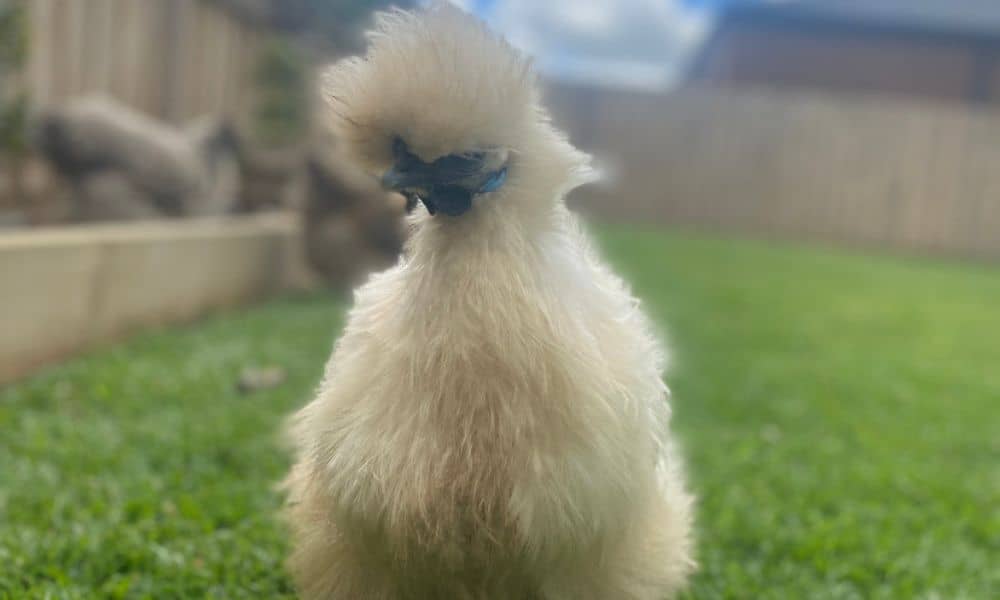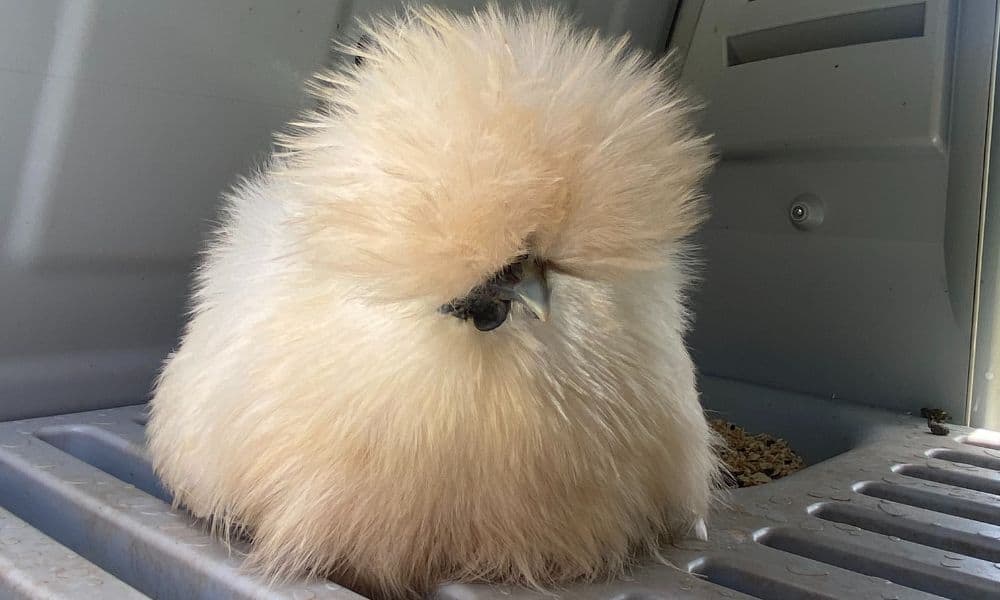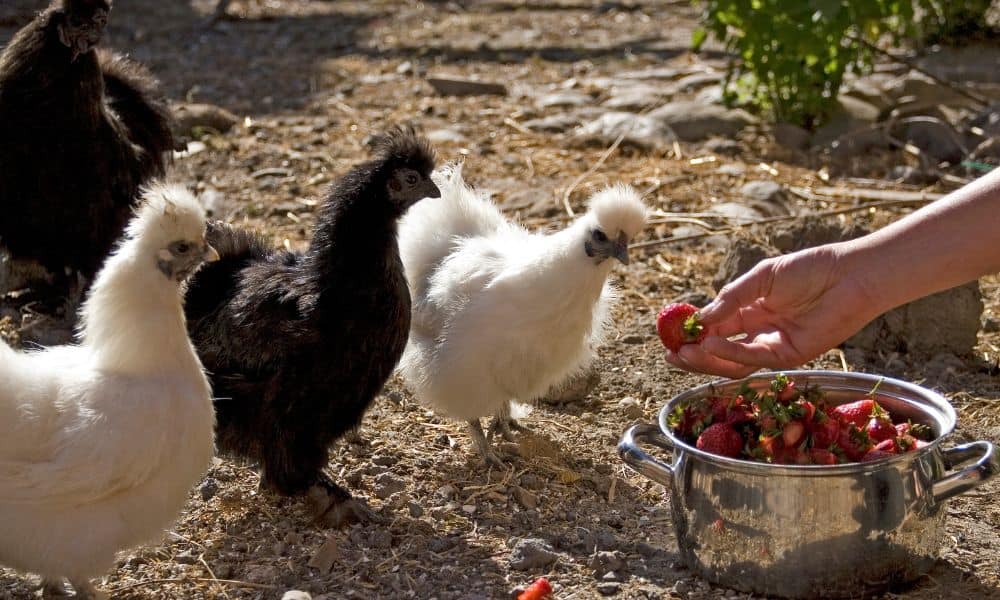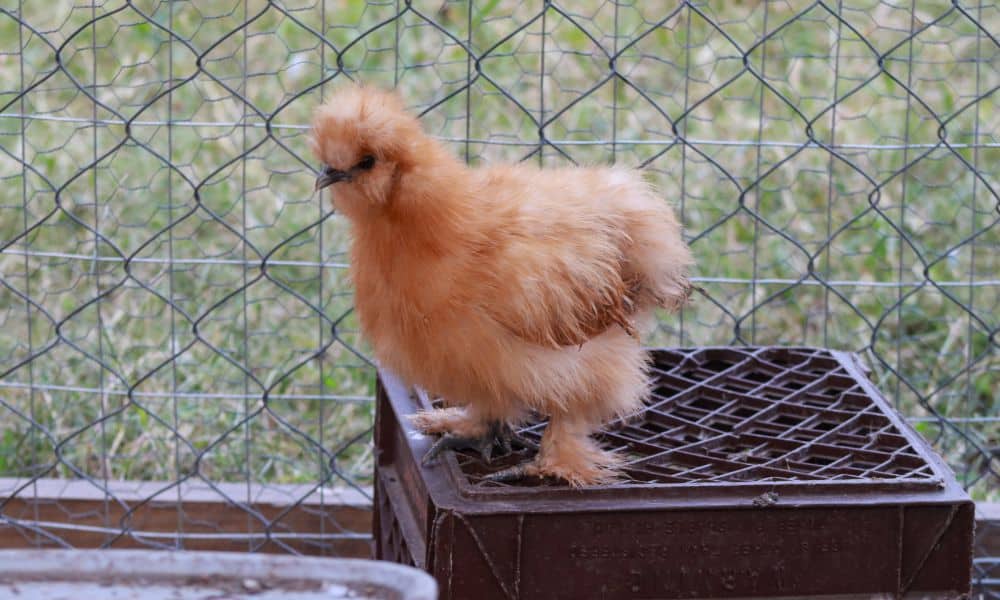One of the most highly anticipated events in any chicken owner’s journey is the arrival of the first egg.
But, after years of companionship and consistent egg-laying, there comes a time when a hen decides it’s time for its egg-laying retirement!
Of course, as chicken owners we want our hens to continue to lay eggs so long as they remain healthy and able – which is where diet and environmental factors can play a huge role.
Here’s everything you need to know about a Silkie hen’s egg-laying life span, when Silkies stop laying eggs, and how you can help with Silkie’s egg-laying longevity.
Contents
How Long Do Silkies Lay Eggs For?

For those that already own Silkies, we all know that they aren’t the best egg-layers in the world. But, this doesn’t mean they won’t still provide delicious and nutritious eggs when they’re able!
Here’s a quick breakdown of a Silkies egg laying capability, timeline, and span:
- Silkies will start laying eggs between 7 and 9 months old.
- When they begin laying, your Silkies will lay roughly 3 small-sized eggs per week, averaging about 120 – 150 eggs per year.
- A Silkie hens egg laying capabilities are at their peak over the first few years of its life.
- Between 3 – 5 years, you can expect your Silkies to lay 100 – 140 eggs per year.
- From 5 years – 7 years, you can expect your Silkies to lay 60 – 100 eggs per year.
- From 7 years and older a Silkie’s egg laying will be almost nonexistent, laying very infrequently, or none at all.
When Do Silkies Stop Laying Eggs?

Really, hens don’t simply flip a switch and go from laying every few days to not laying at all. Instead, it’s a gradual decline in production that stretches over multiple years.
In saying that, a typical Silkie hen will stop laying eggs from about 7 years old.
It’s possible for them to continue to lay eggs into older ages, but the eggs come much less frequently and most Silkie hens will stop altogether at this time.
But, age isn’t the only reason a Silkie may stop laying eggs. It’s also pretty common that Silkies will stop laying during winter, or when they get broody of course!
Do Silkies Stop Laying Eggs In Winter?
Egg production requires a high amount of energy, protein, calcium, and a handful of other essential nutrients.
During the colder months of winter, when there is less daylight and temperatures drop significantly, it’s in a chicken’s nature to conserve its energy, huddle up, and keep warm.
This is why it’s so common for hens to stop laying eggs in winter, or experience a drastic decrease in egg production.
Although Silkies are known to be cold-hardy, they too will still choose to go on an egg-laying hiatus in winter, or at least take longer breaks between their egg-laying.
How To Maximize Your Silkies’ Egg-Laying Longevity
It’s inevitable that your Silkie will stop laying eggs one day.
But, because their egg-laying life span declines gradually over the years, it gives us chicken owners plenty of time to bolster our flock’s health and well-being to encourage them to lay as long as possible.
Although every Silkie chicken’s egg-laying capabilities are different, there are a few common, but very important things you can do to extend and maximize your Silkie’s egg-laying longevity.
Optimize Their Diets

Just like in humans, when you’re younger you can eat a lot more frivolously. But, as you get older, diet plays a larger and larger part in your overall health and well-being.
The same can be said with chickens. So, although you may frequently feed your chickens safe table scrap meals when their younger, as your Silkies age you should stick closer to a fully optimized diet.
This means, being more strict on feeding them treats and other meals, and more focused on a specifically formulated 16-18% protein diet of layer pellets or a layer seed mix.
You don’t need to stop feeding your chooks other foods entirely, but as they get older you should just make it less frequent, and ensure it’s only healthy foods.
Provide Sufficient Light

There’s so much to be said about allowing your chickens direct sunlight.
Not only is it your chicken’s only natural source of Vitamin D, but it directly impacts the egg-laying cycle.
As Silkie hens get older, they tend to become less active in general. So it’s important you encourage them to continue going out in the sun, foraging and continuing on with their daily routines in the sunlight.
Remove Stressors
At any stage of life, ensuring your chickens are comfortable and are in a low-stress environment does wonders for their health, well-being, and egg-laying.
Younger chooks are much better at dealing with stress and tend to recover fairly quickly.
But, as your flock gets older, any stressful event or environment tends to have more of an impact on their health and wellbeing, and subsequently, their egg laying.
Just keep this front of mind as your Silkie hens age, and ensure you have a large enough coop, a safe and secure enclosure, and their’s no younger hens or roosters bullying them!
How To Tell If Your Silkie Is Just Broody
Of all the chickens that get broody, Silkies are certainly the broodiest of the broods. They’ve so good at sitting on their eggs that some breeders even use them to hatch other chickens’ eggs or even duck eggs!
Silkies go broody often and for lengthy periods of time. Even up to 3 weeks at a time!
To see if your Silkie is just broody, check if they are:
- Sitting in their nesting box for 90% of their day.
- Refusing to leave their nesting box, except for short trips for food and water.
- They cluck or “trill” if you come too close.
So, before you panic and think your Silkies have stopped laying eggs entirely, do a sense check to consider if they are actually just broody!
Quick Summary
Silkies aren’t known for their egg-laying capabilities, but this doesn’t mean they give up on egg-laying more quickly than other breeds. If anything, Silkies actually have a much longer egg-laying longevity than high-production breeds.
Still, their best laying years are when they are younger, and from about 3 – 5 years old you will see a gradual decline in egg production.
Silkies will generally still lay SOME eggs from 5 – 7 years old.
From about 7 years old most Silkies stop laying entirely or will lay very infrequently.
To help keep your Silkies laying for as long as possible, ensure you are feeding them an optimal, protein-filled diet, encouraging them to get as much sunlight as possible, and removing any potential stressors from their life!
Long live our Silkies!
